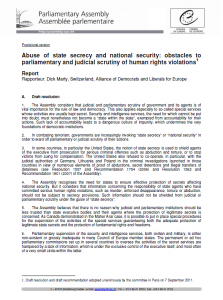
An excellent grand-strategic analysis of last 10 years.
September 1, 2011
By H.D.S. GREENWAY
Historians will label the events of that September morning 10 years ago as the most destructive act of terrorism ever committed up to that time. But I suspect they will also judge America’s last decade as one of history’s worst overreactions.
Of course overreaction is what terrorists hope to provoke. If judged by that standard, 9/11 was also one of history’s most successful terrorist acts, dragging the United States into two as yet unresolved wars, draining the treasury of $1 trillion and climbing, as well as damaging America’s power and prestige. These wars have empowered our enemies and hurt our friendships, and have almost certainly generated more terrorists than they have killed.
Like other victims of terrorism, the United States believed that somehow the answer could be found in brute force. But ideas seldom yield to force, and militant Islam is an idea. The result has been the militarization of U.S. foreign policy.
Safety copy below the line.
Continue reading “Chuck Spinney: Grand Strategy Analysis of 9/11 Blow-Back”








